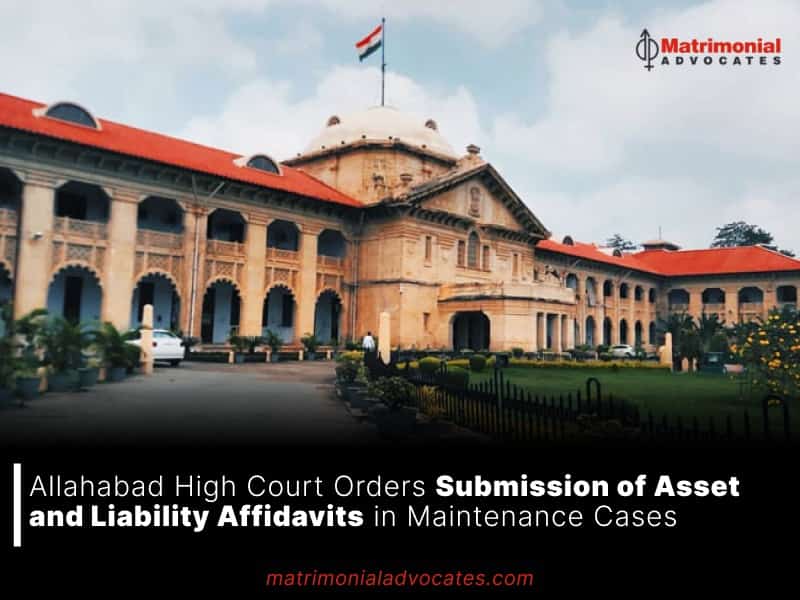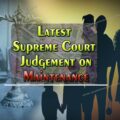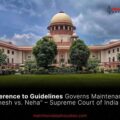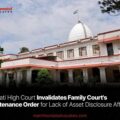
The Allahabad High Court stressed the obligation of courts presiding over maintenance cases to direct the concerned parties to furnish a comprehensive affidavit detailing their financial assets and liabilities.
In a particular instance, the wife initiated legal action under Section 12 of the Protection of Women from Domestic Violence Act, 2005 (D.V. Act), alleging mistreatment from her in-laws, including both physical and mental abuse stemming from dowry demands. Subsequently, the trial court ruled in her favor, granting her maintenance.
However, the High Court observed that the trial court neglected the directives laid out by the Supreme Court in the Rajnesh v. Neha case of 2021 (02) SCC 324, which hold relevance even to ongoing cases. As a result, the trial court was mandated to instruct both parties to submit an affidavit disclosing their financial circumstances.
A Single Bench of Justice Mayank Kumar Jain observed, “It seems appropriate to direct that when an application under Section 125 of Cr.P.C or a complaint under Section 12 of D.V. Act or an application under Section 24 of Hindu Marriage Act is filed before the Court concerned, it should by passing a specific order on the order-sheet direct the applicant to file his/her affidavit of disclosure of assets and liabilities in accordance with the guidelines given by the Hon’ble Supreme Court.”
The Allahabad High Court stressed the obligation of courts presiding over maintenance cases to direct the concerned parties to furnish a comprehensive affidavit detailing their financial assets and liabilities.
In a particular instance, the wife initiated legal action under Section 12 of the Protection of Women from Domestic Violence Act, 2005 (D.V. Act), alleging mistreatment from her in-laws, including both physical and mental abuse stemming from dowry demands. Subsequently, the trial court ruled in her favor, granting her maintenance.
However, the High Court observed that the trial court neglected the directives laid out by the Supreme Court in the Rajnesh v. Neha case of 2021 (02) SCC 324, which hold relevance even to ongoing cases. As a result, the trial court was mandated to instruct both parties to submit an affidavit disclosing their financial circumstances.
“Certainly, in the absence of affidavit of disclosure of assets and liabilities of the parties, it is not clear that on what basis the learned Magistrate awarded the amount of maintenance to opposite party no. 2 and her daughter,” the court remarked.
Consequently, the trial court was directed to seek an affidavit disclosing the assets and liabilities from both parties. Following this, the High Court resolved the application.





